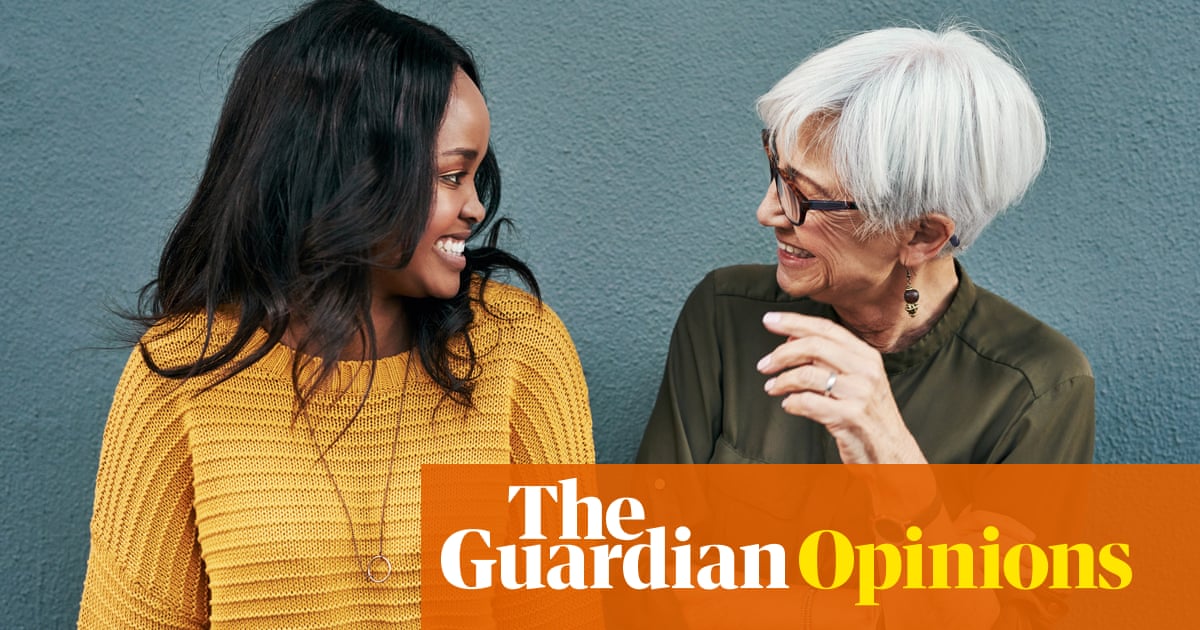I’ve always felt a bit pathetic for not having a proper peer group. In dark moments, it feels like a moral failing and an indictment of my social skills. In kinder moments I recognise it’s also partly a product of being sick and sad at university, then successively too pregnant, too preoccupied with babies and too peripatetic to make or maintain ties. In calmer times, I’ve forged slightly more of a social life, but mostly it’s not made up of my gen X peers, but rather people who are occasionally younger, usually significantly older. Now I’m wondering – am I lucky?
This thought was prompted by anAtlantic podcastdiscussing the demographic moment we’re living in – the usual pyramidal population structure is becoming squarer, with similar numbers of older and younger people – and asking whether we’re making the most of it. The conclusion was we probably aren’t.
“While we are the most age-diverse society we’ve ever been, we’re simultaneously the most age-segregated by institutions, by infrastructure, by policy. It’s like everything in our lives is designed to separate us,” said one podcast guest, Eunice Lin Nichols (co-CEO of anorganisation promoting intergenerational initiatives). She went on to describe how old age became a siloed-off activity, while childhood became more protected and, by extension, distinct.
Nichols and the presenters explored what they felt had been lost: different perspectives; a sense of cultural continuity and community; the village that everyone needs to help raise their children.
In the US and the UK, people are trying to correct this. You’ve probably read aboutnurseries in care homesandintergenerational housing projects; the podcast described retirement communities on university campuses, creative multigenerational communes and places where young people in the fostering system live side by side with older adults. It’s beautiful stuff, but it remains the exception: a report byUnited for All Ages in 2020described Britain as one of the most age-segregated countries in the world. The thinktank iscampaigning to create1,000 intergenerational community centres by 2030.
I often read stories aboutthe joys of intergenerational friendship, but perhaps that says more about our longing for them than their prevalence? Age-gap relationships have become something to be carefully cultivated and commented on rather than an unremarkable fact of life. My intergenerational relationships came about quite carelessly, mostly as a result of moving to a smaller town and having more time to do stuff I love (singing, nature, yoga). I do feel lucky to have those friends, partly because that Atlantic podcast is right: knowing people in their 70s and 80s (and to a lesser extent 20s and 30s) gives me a more expansive sense of community and broader, fresher perspectives. But there have also been more personal benefits.
A huge one is that having friends at very different life stages has almost cured me of my nasty, ridiculous compulsion to compare myself with others. When I started having more intergenerational relationships, my brain struggled to do the weird benchmarking it always seemed compelled to conduct around others – are they happier, more stylish, more successful? It felt so patently ridiculous with someone with a spouse with dementia (even if their garden was jaw-droppingly beautiful), or struggling to find their first job (even if they had perfect, dewy skin), that at some point I just mercifully short-circuited.
We are all, always, dealing with our own incomparable stuff. And that’s the other thing: over years of throwaway remarks and deeper conversations, sharing crisps or lifts, binoculars and musical scores, I realised things can feel urgent and unsettled at any age.
My older friends in particular have gradually relieved me of the notion that at some future point my life will feel sorted. It’s not that I was happy to realise they still get anxious, angry or sad about relationships. Or that they worry about the world and wonder if their lives are heading in the right direction. But knowing that they do so makes us feel closer and gives the lie to the notion of siloed generations with entirely distinct preoccupations.
Structurally, everything may be “designed to separate us”, but inside, we’re all just stumbling and struggling, finding what joy we can along the way. That seems a pretty great basis for a relationship, at any age.
Emma Beddington is a Guardian columnist
